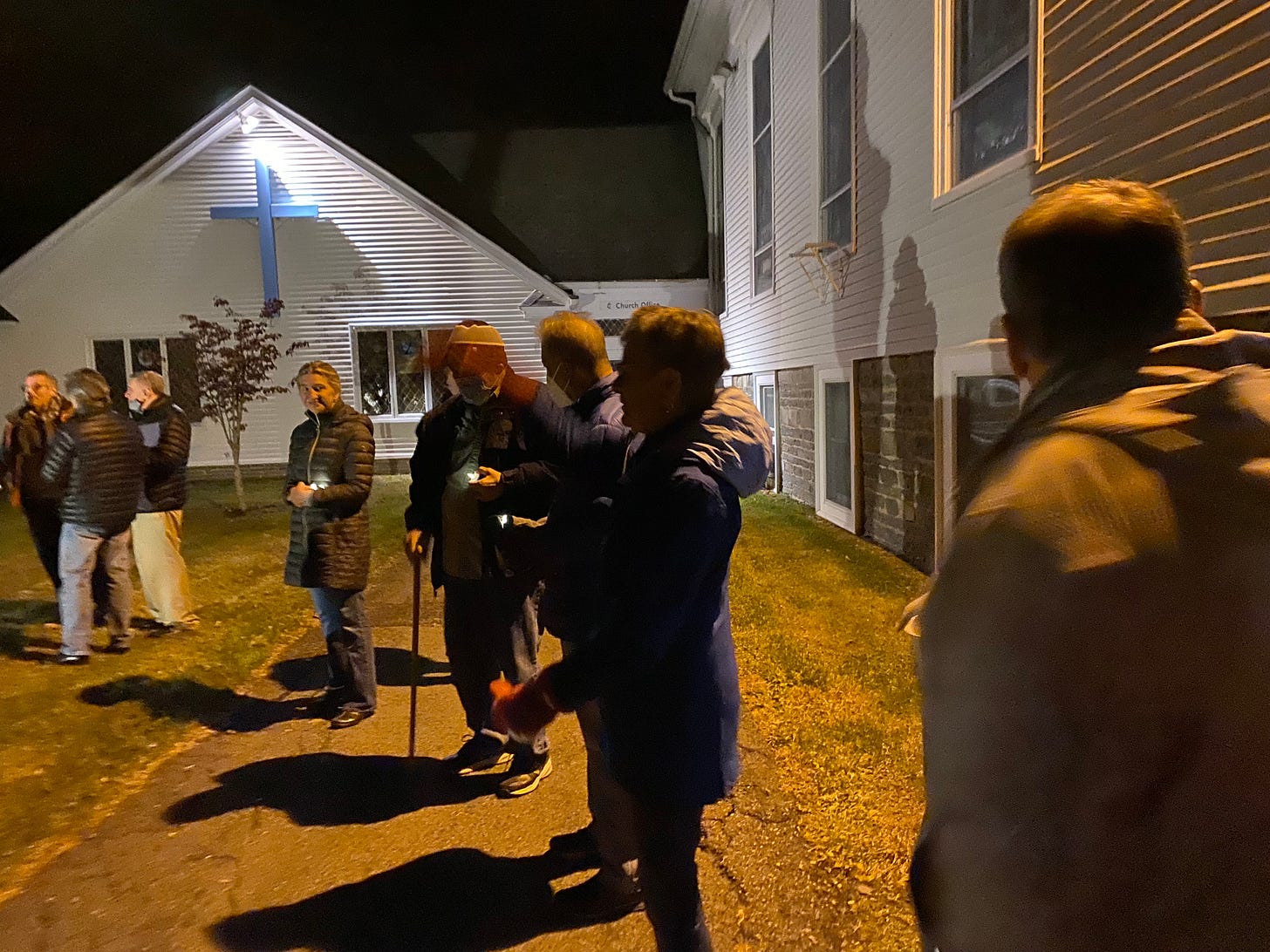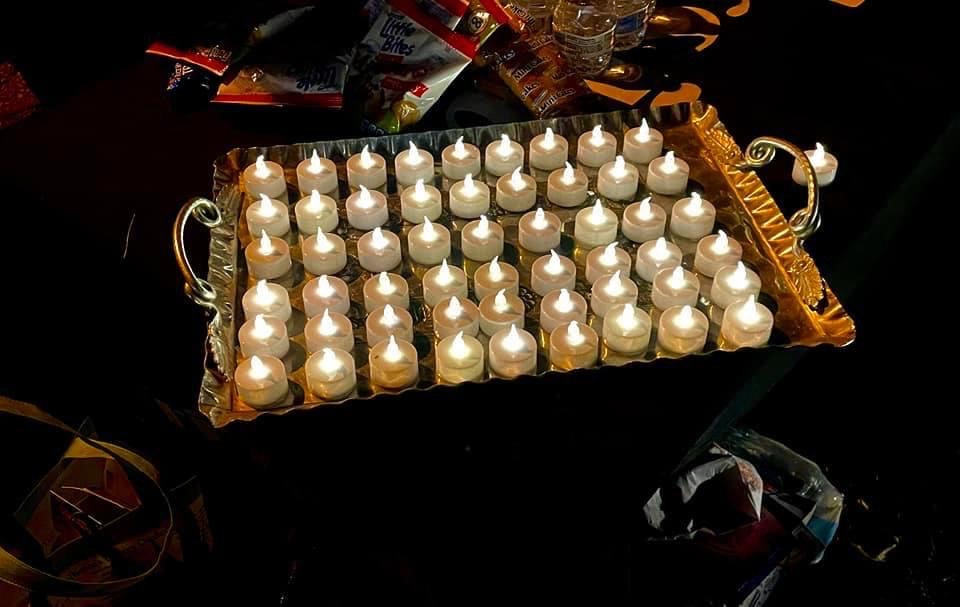Transgender Murder Victim Remembrance Reminds of Inequalities
The number of people murdered for being transgender has been increasing in the U.S., says Simone Kraus. She read the names of 54 victims from the past year at a gathering for Transgender Day of Remembrance on Nov. 20, at Milford United Methodist Church, hosted by Reverend Jenn Lovallo.
“I got a sense of the humanity of each person lost because Simone included details about each one,” said Lovallo. “They weren’t just numbers.”
But the number had more than doubled from two years earlier when 25 had been murdered, Kraus said, although identification of murder victims as transgender has been inconsistent, according to the Human Rights Campaign.
November 20 was designated for the observance in 1999, when a vigil was held for Rita Hester. She had been murdered in Boston the year before for being transgender, Kraus said. She pointed out that most transgender murder victims are women of color, and an article in the American Criminal Law Review noted that 23 of 26 victims in 2018 were POC.
“In those communities, there’s less acceptance of transgender people,” said Kraus.
Black transgender women particularly face hardship. A Time magazine story cites the 2015 U.S. Transgender Survey by the National Center for Transgender Equality, finding that “38% of black trans people surveyed reported living in poverty, compared to just 12% of the U.S. population and 29% of transgender people overall. The respondents also reported greater housing instability, with 51% of black trans women reporting that they have experienced homelessness at some point in their life. Black trans women were also disproportionately likely to report having participated in sex work for food or shelter, and 42% of black trans women said they had taken part in income-based sex work, compared to 12% of overall survey respondents.”
Although the murders did not necessarily occur in the context of sex work, such circumstances particularly leave transgender women of color vulnerable. Men who kill when they are surprised to discover that their sex partner is transgender have sometimes been vindicated by the “trans panic defense,” outlawed in only 18 states, Kraus said. This defense is used to justify the defendant’s claim that they lost control in some way as a result of their panicked reaction.
“Red states that introduced legislation limiting the rights of transgender people are where 60% of transgender murders happened,” Kraus said. “This year, 131 of those bills were introduced in 33 states. Those laws are dehumanizing.”
Kraus says she experiences that dehumanization. Although she lives in New Jersey, she notices a tendency in Pennsylvania for people to be more openly derisive toward her, as a transgender woman, when she approaches the Triversity Pride Center in Milford, a gathering place for the LGBTQ+, where she is vice president.
“Pennsylvania people are more vocal about expressing their prejudices to everyone in hearing range than I’ve experienced in New York or New Jersey,” she said. “Don’t get me wrong. It’s there, but people are less likely to show themselves as bigoted.”
Particularly troubling to her recently have been the introduction of laws banning hormone therapy for youth, consistent with their gender experience. This year, 35 such bills have appeared in state legislatures around the country, according to the Human Rights Campaign. Although some medical risks have been found with hormone therapy, mental health gains from the treatments can be pivotal. Kraus pointed out that 41% of transgender youth attempt suicide. She knows those feelings well, having verged on suicide earlier in her life.
Suicidality decreases steeply with hormone therapy consistent with a transgender person’s experience of their gender, along with use of their chosen name and gender pronouns, Kraus said.
Meanwhile, previous legislation has been interpreted to forbid housing discrimination on the basis of gender, but proving discrimination in court can be lengthy and tedious, she said. She wants to see the more assertive federal bill known as the Equality Act (HR5) pass, prohibiting discrimination based on sex, sexual orientation, and gender identity in such realms as public accommodations and facilities, education, federal funding, employment, housing, credit, and the jury system.

Steven Bloomer-Teague, an attorney and also president of the Triversity Pride Center, agreed with Kraus.
“Interpretation means that there isn't specific language protecting the LGBTQ community. The problem with interpretations is, unless made by the State Supreme Court, that can change with a different administration. The Equality Act is a federal law that applies to all 50 states. It provides very specific protections to the LGBTQ Community, including, but not limited to, protections in housing discrimination.”
“Some think that trangender people want special rights. But no, we just want the same rights,” said Kraus.
Community news needs community support to continue. Please consider the various Tri-State Lookout subscription levels.




